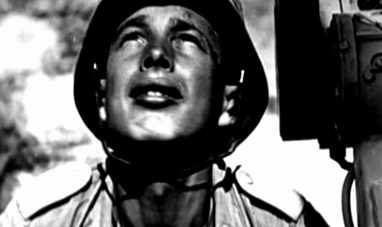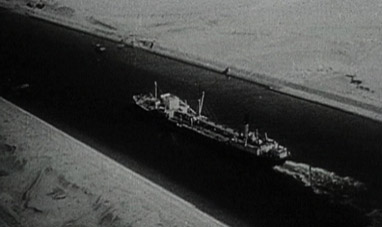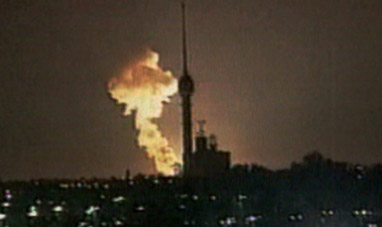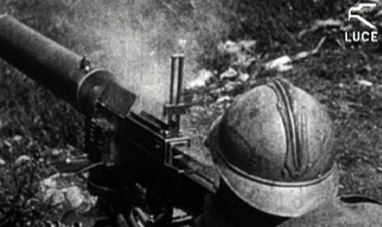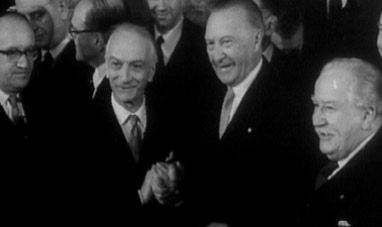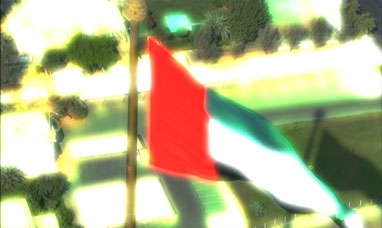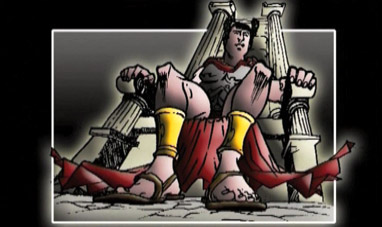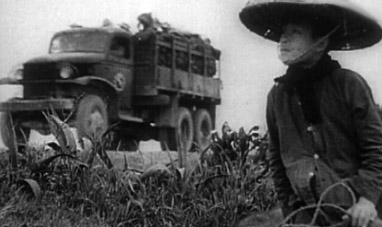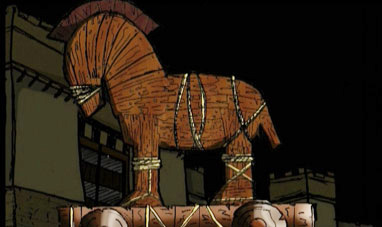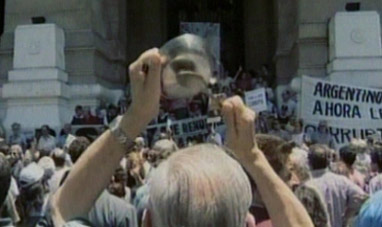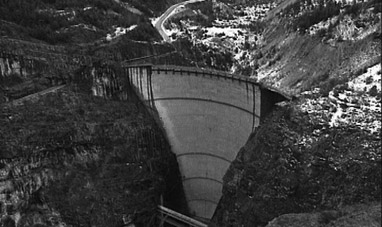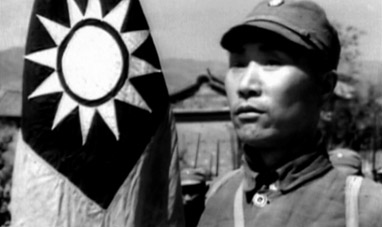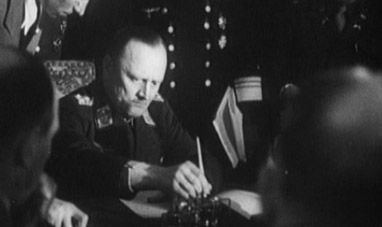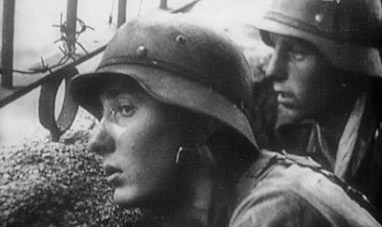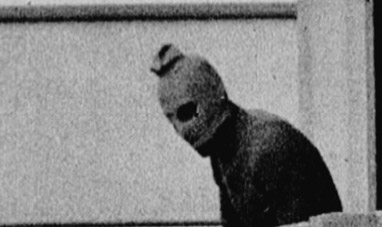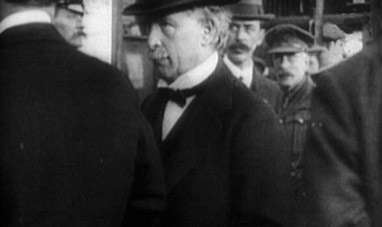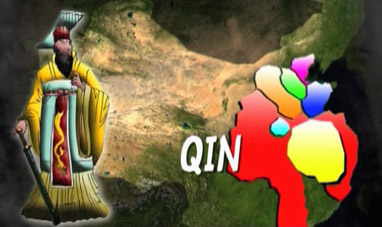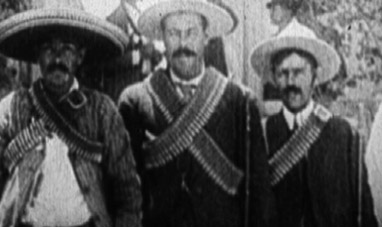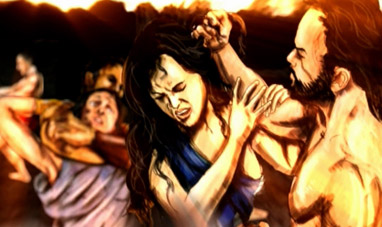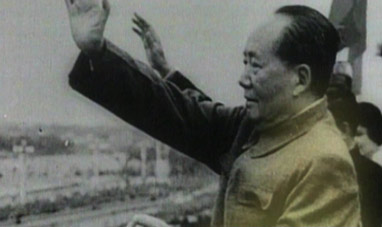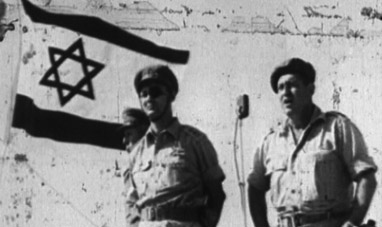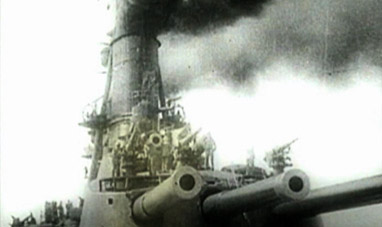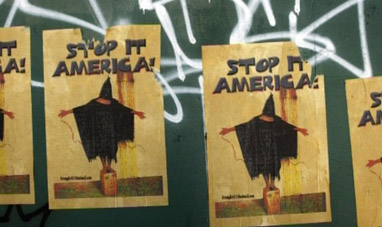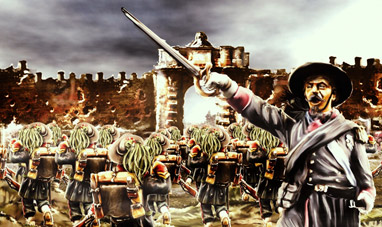On September 28, 2000 in Jerusalem, Ariel Sharon, leader of Israeli right-wing party Likud, walked with a police escort on the Temple Mount, a sacred site claimed by both Arabs and Jews. Sharon's visit ignited the Second Intifada, a revolt by Arabs living in Palestinian territories occupied by Israel. In 1948, the nation of Israel was born. Israel was founded on territories where more than a million Arab Palestinians lived. These Arabs were forced to relocate. Arabs’ legal claim to those territories developed into a state of permanent war. In 1993, peace seemed possible. Yasser Arafat, leader of the Palestine Liberation Organization, [PLO] and Israeli prime minister, Yitzhak Rabin, signed the Oslo Accords. Palestinians recognized Israel. In turn, Israel committed to withdraw from major cities in the Gaza Strip and the West Bank, which were entrusted to the Palestinian National Authority. But Palestinian terrorist attacks and the ongoing development of new Israeli settlements in occupied territories rendered the agreement ineffective. The violence continued. In 2000, the US promoted a meeting between the PNA and Israel at Camp David. Tensions over a lack of agreement and Sharon’s walk on Temple Mount, which the Palestinians saw as a provocation, triggered the Second Intifada. Palestinians fought with kamikaze attacks and guerilla warfare in Israeli cities. Israelis responded with military attacks, arrests and targeted killings of presumed Palestinian terrorists. On March 29, 2002, Israel organized Operation Defensive Shield.
This military attack led the Israelis to reoccupy the principal Palestinian cities. New kamikaze attacks followed the Israeli offensive. There were numerous victims. On June 16, 2002, Israel began to build a wall about 600 kilometers long in the West Bank. Israel wanted a defense against Palestinian attacks. Palestinians consider the wall an act of force by which the Israelis attempted to annex territories that did not belong to them. On April 30, 2003 the international community promoted the Road Map. This peace plan made provisions for the cohabitation of two sovereign nations. The Road Map was not successful. On November 11, 2004 Yasser Arafat died under circumstances that remain unclear. Abu Mazen took over as leader of the Palestinian Authority. On January 25, 2006 the Hamas party, a militant political group with links to Islamic extremism, obtained a majority in the Palestinian government. The Al Fatah party, the less radical wing of the Palestinian authority, became its opposition. Western governments considered Hamas a terrorist organization and suspended all aid to the country. Today, the Second Intifada continues to rage. Ongoing animosity between Al Fatah and Hamas in Palestine, and between hawks and doves in Israel, continues to make dialogue difficult and peace a permanent mirage.
This military attack led the Israelis to reoccupy the principal Palestinian cities. New kamikaze attacks followed the Israeli offensive. There were numerous victims. On June 16, 2002, Israel began to build a wall about 600 kilometers long in the West Bank. Israel wanted a defense against Palestinian attacks. Palestinians consider the wall an act of force by which the Israelis attempted to annex territories that did not belong to them. On April 30, 2003 the international community promoted the Road Map. This peace plan made provisions for the cohabitation of two sovereign nations. The Road Map was not successful. On November 11, 2004 Yasser Arafat died under circumstances that remain unclear. Abu Mazen took over as leader of the Palestinian Authority. On January 25, 2006 the Hamas party, a militant political group with links to Islamic extremism, obtained a majority in the Palestinian government. The Al Fatah party, the less radical wing of the Palestinian authority, became its opposition. Western governments considered Hamas a terrorist organization and suspended all aid to the country. Today, the Second Intifada continues to rage. Ongoing animosity between Al Fatah and Hamas in Palestine, and between hawks and doves in Israel, continues to make dialogue difficult and peace a permanent mirage.

